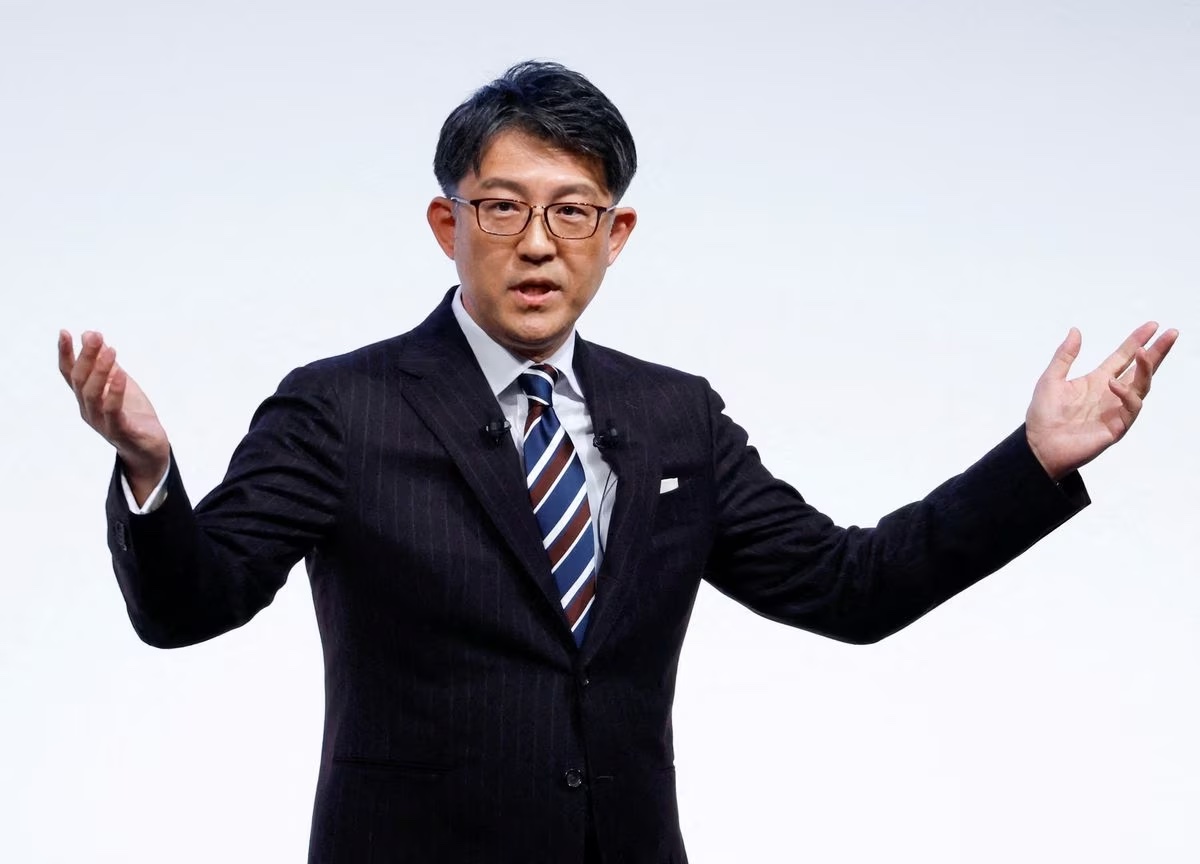By Norihiko Shirouzu, Joseph White and Maki Shiraki
April 6 (Reuters) – After making sweeping changes to its leadership team, Japan’s Toyota Motor Corp (7203.T) is looking at a factory floor overhaul as it maps out a move to a new, dedicated platform for battery electric vehicles, four people familiar with the matter said.
Koji Sato may confirm that new EV architecture is in the works at his first briefing as CEO on Friday, one of the people has said.
It was, however, not immediately clear as of Thursday evening as to whether the plan had been formally approved.
The world’s biggest automaker increasingly recognises it needs to match Tesla Inc’s (TSLA.O) design and manufacturing innovations if it is to drive down production costs and turn its all-electric business into a higher margin one as its Silicon Valley rival has done, another person said.
It continues to study the issue, that person said.
A new EV platform, if implemented, would be the result of a far-reaching review of Toyota’s electric-car strategy undertaken last year.
Slow to push hard into battery electrics, such a move by Toyota would bring the automaker into line with other global rivals. Its current production architecture, the e-TNGA system, was launched in 2019 and produces electric vehicles on the same assembly line as gasoline cars and hybrids.
E-TNGA can’t, however, provide the cost savings Tesla has managed with its massive Giga Press casting machines and other manufacturing innovations.
The sources declined to be identified because the information was confidential. Asked for comment, Toyota said questions could be asked at Friday’s briefing.
Sato, Toyoda’s hand-picked successor, recently attended an internal presentation that focused on the need for a dedicated battery-electric platform, a more competitive system to manage heat generated by the battery as well as other innovations influenced by Tesla’s playbook, according to a third person.
The briefing was given by the former chief competitive officer tasked with the EV strategy review, Shigeki Terashi, according to the person.
Several projects that were supposed to take advantage of the e-TNGA platform are now being delayed or cancelled, a separate person said.
A LONG TIME COMING
A shift for Toyota is long overdue, critics say.
Under former CEO Akio Toyoda, the founder’s grandson who became chairman on April 1 when Sato took the top job, Toyota saw global demand for battery electrics outstrip its modest estimates.
“Some of the statements that came out of Toyota when Akio Toyoda was CEO sort of made it sound kind of like hybrids are going to be there forever. No, it’s your standby, it’s your hedge. EVs have to be first,” said CLSA analyst Christopher Richter.
Environmentalists and investors also have been increasingly vocal about the need for Toyota to move faster.
Tesla made almost eight times the profit per vehicle as Toyota for the third quarter, partly because of its ability to simplify production and reduce cost.
EVs are now expected to globally represent more than half of total vehicle production by 2030. Meeting that demand will be critical for Toyota. So far it has fallen short – its initial battery EV, the bZ4X, suffered an early recall and has had only limited sales.
In the United States, where the growth of EVs is outpacing that of the overall market, Toyota’s lack of battery electric models appears to be hurting sales. Toyota reported U.S. sales fell by nearly 9% during the first quarter while General Motors Co (GM.N) saw an 18% boost, helped by greater demand for EVs from fleet and commercial customers.
GM sold more than 20,000 electric vehicles during the first quarter while Toyota and its luxury brand Lexus sold about 1,880 battery electrics. And while Toyota/Lexus sales of electrified vehicles – mostly hybrids with a smattering of battery electric and hydrogen vehicles – came to just under 119,000, that represented a slide of 10.7%.
U.S. consumers making the switch to electric vehicles are largely doing so from Toyota and Honda Motor Co (7267.T), data from S&P Global Mobility showed in November.
If Toyota doesn’t pursue electric vehicles under Sato, the company “will be leaving money on the table,” said Katherine Garcia, director of the Clean Transportation for All Campaign at the Sierra Club, pointing to the growth of EVs across U.S. states.
In his briefing on Friday, Sato is also expected to lay out a strategy that emphasises “diverse powertrains”, one of the people said. In doing so, he will stress that gasoline hybrids will remain key to its business even as it ramps up EVs.
Some of Toyota’s suppliers have also privately expressed concern about its slow embrace of EVs.
According to one executive at a Toyota supplier who declined to be identified, some have been looking at increasing business with other manufacturers to hedge their risk when it comes to EVs.
But that could change depending on the automaker’s strategy, the executive added.









